
Russ Ballard: “I didn’t like learning theory at all – that was too much like hard work.”
Meet the hitmaker behind classic rock songs like ‘Since You’ve Been Gone’ and ‘God Gave Rock And Roll To You’
Since You’ve Been Gone, You Can Do Magic, New York Groove, So You Win Again, No More The Fool, Liar… Russ Ballard’s songs are on permanent heavy rotation the world over. His own first hit record was God Gave Rock And Roll To You (memorably turned into a global mega-hit by Kiss) with his band Argent in 1974, but his songs have been recorded by everyone from Rainbow to Hot Chocolate to America to Elkie Brooks to Three Dog Night and many, many more.
On the release of his 10th solo album, It’s Good To Be Here – a combination of new material and reworked versions of some of his era-defining classics – we took the opportunity to chat with the hitmaker extraordinaire and uncover some of the secrets of his success…
Take us back to your earliest memories of writing music.
“Initially, my mum and dad sent me to piano lessons with my brother. I wasn’t so interested in what I was learning because it was classical stuff. I quite liked some of the tunes, but I didn’t like learning theory at all – that was too much like hard work. So as soon as my mum and dad were out the door, I was playing Jerry Lee Lewis, Fats Domino, Little Richard – I was interested in boogie-woogie – and that kind of stuff, so I could teach myself and by the age of 12 I was playing not-bad boogie piano.
“I was always interested in songs. My mum used to play records a lot, things like Beethoven’s Moonlight Sonata, Nelson Eddy and whatever, and I used to take it all on board. Once I’d sort of left the piano, I was playing the guitar at 12 years old and I wanted to concentrate more on that, so I got heavily into guitar music, and that’s when I started to make up some tunes. The Shadows were big at the time and there was a lot of instrumental music out there, so I was influenced by that and gravitated to that kind of sound.
“The very first time I went into a studio – I had a band with my brother when I was very young – we went into Regent Sound on Denmark Street and we put down this demo that I’d written. It was an instrumental called Atlantis, which was very much like something The Shadows would’ve done.”
Other than The Shadows, what inspired you to write that particular song?
“It had a few chords to it, so it had a kind of romantic sound and I guess Atlantis had a nice atmosphere. I played it to Cliff Richard’s brother-in-law, Paul Stevens, who we kind of knew – he opened a coffee bar in Waltham Abbey, four or five miles down the road. Cliff used to live in Cheshunt and I used to live there, so we used to see him – he was the well-known rock ‘n’ roller at the time.
“Paul knew we had a band and we’d say, ‘We’ve just been in the studio and made this demo,’ and he’d say, ‘Oh you should bring it in and maybe I can take it up to The Shadows.’ So we took it in, they sent it to their publisher Carlin Music, and believe it or not they recorded it, four years later! It was a track on The Sound Of The Shadows and the album got to No 7 so it gave me that feeling of, ‘Wow, I can do it!’
“I was 14 years old and then I went professional with Adam Faith when I was 16, and I was a guitar player really, more than anything. I did keep writing but nowhere near as much as later, because I was on the road with Adam when I was part of the Roulettes and we were touring all over the place, so there wasn’t much time for writing – you didn’t have a nice little studio to record on the road. In those days, you needed a microphone and a reel-to-reel tape recorder.”

Russ Ballard: “If it affects you and you have that intake of breath, then I think it affects other people.”
Is it fair to say that there wasn’t really the expectation on you to write songs, at that time?
“That’s true. You had the writers behind the scenes like the Brill Building in America and over here you had the Denmark Street writers. There were people like Ian Samwell who was writing stuff for Cliff, and there was Roger Cook and Roger Greenaway, and there were a few people like that. Obviously, Bruce Welch and Hank [Marvin] were writing at the time, but it was something I wanted to do. I thought it was something I could do. So as soon as I got home, I’d sit at the piano and start playing chords. And I could remember things that I’d done – I had a good memory, so any time I played a line that I liked I could remember it.”
Do you agree with the idea that: if you can’t remember it then it wasn’t good enough?
“Yeah, you can tell. I believe in that ‘buzzy feeling’ one gets when you can play lots of lines, but suddenly there’s a kind of intake of breath… If you get that, I’d say go with it, because I believe we’re not that separate from each other, as human beings, and we all experience the same stuff. So if it affects you and you have that intake of breath, then I think it affects other people. And I think that’s what happens to us. It’s in the performance as well – you’ll hear Adele sing Someone Like You and she’ll get to one note, and suddenly you’ll go, ‘Ohh!’ and everyone feels that. So once you feel that, go with it.”
A lot of songwriters describe something similar to that feeling, but it’s difficult to articulate, isn’t it?
“It definitely is. I know it’s a bit of a cliche, the intake of breath, but I don’t think I’ve ever said that before in an interview – I’m just trying to think of the feeling. I’ve seen it in people when they think they’ve got something: you see them stop and go wide-eyed and you know they’ve found something good. It doesn’t mean it’s going to be a hit, but there’s a good chance if you finish it off and you keep feeling that thing about it. It’s going to affect other people, that’s what I think.”
Talking about writing with other people, tell us about how Argent got together – were you collaborative as a band?
“The strange thing is, when Rod Argent was in The Zombies, he was writing at 17 years old and coming up with She’s Not There, which was No 1 in America and Top 20 here. That was a very sophisticated song, chords, mood, production, arrangement… everything. So when he asked me to be in the band, it gave me a profile and Rod asked, ‘Have you got any songs?’
“He’d already been writing and had an album full of songs, all demos and there were lots of good tunes there, but I had one that I’d already demoed, a song called Schoolgirl. I’d already demoed it actually because I knew I was going to be in the band. I went into my friend’s studio – I could get downtime in there for next to nothing. So I’d go in there with an idea and I’d put down the song. It was very similar to She’s Not There with a minor key and I had this lyric, thinking about what I did as a kid. It was kind of bluesy and I played it to the band, and they said, ‘Yeah we should cut that.’
“Then I had another idea, Lonely Hard Road, I wrote that and they liked that one. And on the way to the session – we recorded at Sound Techniques in Chelsea – I was with the road manager in the truck and I was still trying to finish the words to the song Liar, which was another blues one in a minor key – I always wrote in minor then. I was singing, ‘Ain’t that what you said? Ain’t that what you said?… LIAR!’ The idea being that element of surprise is always a killer, it’s a killer in songs, in movies and in jokes. So I’d got that element of surprise and it gave me a thrill. And I finished it just before we got into Chelsea.”

Russ Ballard: “I know they just sound like pop songs, but I’d written my life in those songs.”
That technique of coming up with something to surprise the listener, was that instinctive or did you learn it and consciously employ it?
“I knew that the element of surprise was a great component to have in any sort of field. Hitchcock was doing it in movies. I had it in that instrumental I wrote for The Shadows, where the middle section went into double-time, which I think made it – it took it somewhere else so you didn’t have too much time to get bored with it.”
We were looking through the credits of the first few Argent albums, it appears you wrote songs individually rather than collectively. Was that the case?
“That’s absolutely right, we always stayed separate. Chris [White, one of the main writers of The Zombies’ music] and Rod often used to write separately, but just put their names together at the end. I’m sure Chris wrote Hold Your Head Up because we were already doing a tune like that and he said we ought to write around it. He came in with the actual guitar phrase, although Rod might’ve put something into that. Funnily enough, I did say to Rod one day, ‘Why don’t we try writing together?’ and his words to me were, ‘Oh I can’t write with anyone. How do you write with somebody?’ Well, I’d never written with anyone, but I thought we could try it.
“Strangely enough, going back about 18 years ago, there was a movie called Still Crazy about a band getting back together in their 50s. They sent us a script to write songs for it and Rod said, ‘Why don’t we try writing something together?’ So he came round here and we wrote a couple of songs. We wrote a title piece that would’ve been a monster, but they didn’t go for it, which really did surprise me. Then I wrote a song on my own called What Might’ve Been and they used that one – Jimmy Nail sang it.”
So it took about 20 years but you got to write together in the end! Can you tell us about how you wrote Since You’ve Been Gone and how Rainbow ended up releasing it?
“I know they just sound like pop songs, but I’d written my life in those songs and there’s always a bit of my life in there. I mean with, ‘I get the same old dreams, same time every night, fall to the ground and I wake up,’ everyone’s had that but I’d never heard it in a song before. It’s probably an anxiety dream and with, ‘These four walls are closing in,’ I’ve had that as well. The whole feeling is insecurity, and ‘I’m out of my head, can’t take it,’ is the feeling of panic.”
“I released Since You’ve Been Gone on my second solo album called Winning and it was the second single. It was in the American charts three times with three different artists, and it was a hit before Rainbow did it. I put it out and it got a few plays, but I wrote it on the piano, played it on the piano and I made it softer, which was a problem. I heard a band called Head East do it – they did it first. It wasn’t a big hit but it stayed around the 30s and 40s of the Billboard chart for a long time. Then they toured with Rainbow and they heard it there. I didn’t get that from Ritchie [Blackmore, the guitarist, songwriter and founder of Rainbow] but that’s the story I got.”

Russ Ballard: “There’s something magical about having an idea and developing it. It’s frustrating too, though…”
Let’s talk about your new album. What’s it like being a songwriter now you have a huge back catalogue of successful songs – does it get harder to keep creating new music?
“No, it’s weird innit! People have said that I’m like a 16-year-old. When it comes to music, it’s no different. You obviously change and I’ve got a wealth of experiences, and I love writing still. Most days I’m in the studio, even on Saturdays and Sundays, I go in there early in the summer – five or six o’clock in the morning and work ’til lunchtime, then I sit in the garden and read a book. So I still do a day’s work and I love it.
“When you’re young you’re finding lots of things and you’ve written so much about being young when you’re young. So I try to write more about ‘now’ and the idea of what’s happening to you now. There are a few things on this album Wasted where, inwardly, I’m writing about the years I’ve wasted when I could’ve been on the road. I love playing live and stuff, but when I had a child I had to make that choice to see my kids grow up – so I put that energy into that song.”
Has your actual approach to writing changed over the years?
“Yeah, I try to work in different ways. Now I’m writing much more on the guitar, whereas all those songs like God Gave Rock And Roll To You and Since You’ve Been Gone, they sound like guitar songs but I wrote them on piano. Now I’m sitting in the studio, I’m picking up the guitar and I’m finding all sorts of different ways to write, but I still believe in the lyric. It starts from that little piece of grit in the oyster that makes the pearl – you’re looking for that line, that title or that something ‘wow’. I’ve got loads of those bits; I’ve got loads of songs that aren’t finished.”
Where do you capture those bits of ideas?
“It can happen in the middle of the night. I’m terrible for waking up, turning on the light and writing a lyric. It’s great to finish something, but it’s nice to have lots of pieces that aren’t connected – I’ve got thousands of those in the studio. I can go in there, look through them and – if I’m trying to finish a song – I’ll take a line from one song and line from another and another, and they just happen to dovetail. There’s something magical about having an idea and developing it. It’s frustrating too, though, it’s like a puzzle that you’re trying to finish, but it’s wonderful when you get it right.”
Russ Ballard’s new album It’s Good To Be Here is out now via BMG. Find out more at russballardmusic.com



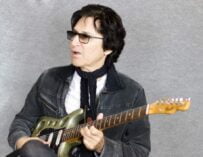
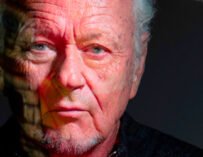

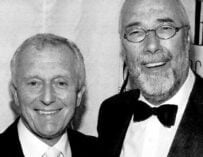


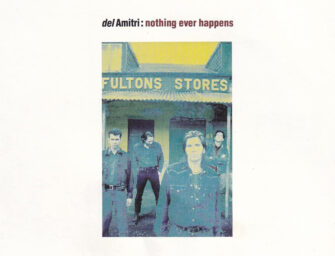

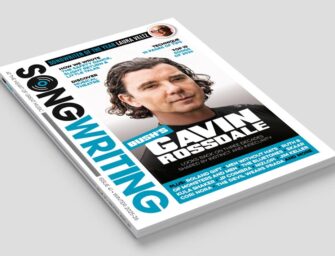
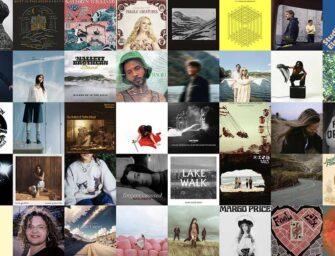




















Related Articles